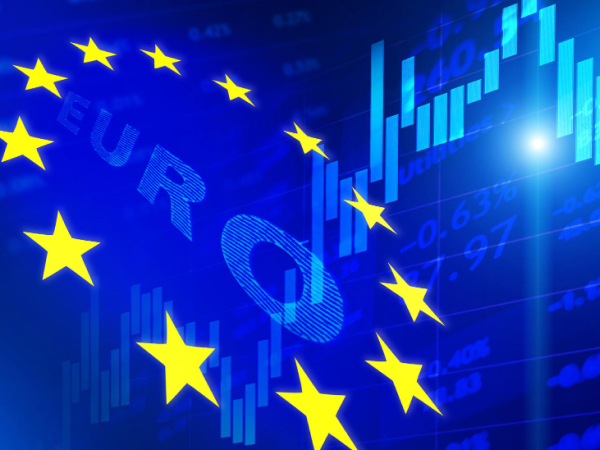- 5 minutes read
Table of contents
- Is it advantageous to open a business in Europe?
- The advantages of opening a business in Europe
- How competitive is the business environment in Europe?
- What is required to open a company in Europe?
- Which countries in Europe have low business taxes?
- What is the best place to open a company in Europe?
- Conclusion
Europe has always been the place where successful companies are concentrated. Historically, European countries are considered to be the most reputable and safest.
Is it advantageous to open a business in Europe?
Europe is the place where commerce in its modern format originated. In our opinion, this brings both pros and cons, which we will talk about in this article.
In general, of course, yes, it is profitable to open a company in Europe.
Quickly select a jurisdiction and register your company anywhere in the world online
The advantages of opening a business in Europe
First of all, Europe gives access to a huge market. Europe has more than 740 million people, making it one of the largest markets in the world. This gives a great advantage – the larger the market, the more customers you can hypothetically attract.
Secondly, Europe is very generalized as a union of countries. This affects the political and economic situation in the region. Despite the problems that the world has been experiencing in the last few years, European companies have been withstanding them quite well (certainly in comparison with those from other regions).
This stability is mainly due to the strict state policy of the member states, their supervisory bodies, as well as a solid legislative framework.
Third, over the past 50 years Europe has developed a system that helps businesses grow. The policies of EU countries are aimed at a supportive business environment model. For example, Germany, in early 2020 introduced an anti-crisis program for small and medium-sized businesses. It included 9-15 thousand euro compensations to businesses that suffered from quarantine restrictions. Also, a separate budget line was allocated massive subsidies to cover employee salaries, bill payments, etc. This way, Germany’s overall budget for 2022 was increased by 43 percent by the Bundestag because of companies needs.
Some global points. Let’s talk about the diversity of cultures: Europe is a multicultural community, which can represent a potential audience for different products and services. This can also lead to opportunities to create new business models and develop innovative ideas.
Reliability and security: Most European countries are characterized by a high level of security and stability, which may be attractive to world entrepreneurs looking for a reliable and stable business climate.
In addition, the European countries have a well-developed infrastructure. This is not the least relevant for business. There are also very qualified employees in many areas.
However, the advantages of operating in this large and stable market can make it a wise choice for many businesses.

How competitive is the business environment in Europe?
Earlier we talked about the pros of opening and doing business in Europe. So, now it is worth moving on to the difficulties that could potentially arise for your company.
For example, competition in the market. Because the market for goods and services in the EU is very well developed, there are already many businesses operating in many niches. This creates a kind of problem for small companies. There are quite a large number of reputable companies and holdings, with which it is difficult to be competitive. At the same time, this problem is not unique to the European region. Business competition is present all over the world, regardless of geography.
In addition, another factor that discourages small and medium-sized businesses from the idea of the EU is taxes. The tax policies of the European countries are quite strict and time-tested.
For example, Germany is considered to be a very reputable and stable jurisdiction. But at the same time, it is one of the most expensive countries in terms of business taxes in the European Union. For example, scientists from the Center for European Economic Research (Mannheim) came to the conclusion that this country taxes businesses 10% more than other EU countries. A very similar situation arises in Spain, Denmark, Italy, the Netherlands and France. The French government carried out significant reforms in the field of taxes in the last few years. But it still remains quite expensive. Actually, it is not easy to develop business in the so-called “old” jurisdictions.
This also applies to the bureaucracy. It is fairly well known around the world and many have encountered it personally. Countries in Europe were not very prepared for the coming quarantine during the coronavirus, and, in fact, life stood up. So procedures began to be developed massively to bring digitalization into business life. Administrative services for businesses are now available to some degree over the Internet. It makes life much easier for businesses. For example, it is possible to keep tax records, report changes in the structure or the appointment of a new director online.
Thus, although business in Europe has very strong advantages, the entrepreneur should be prepared for strict bureaucratic procedures and great competition in the market.

What is required to open a company in Europe?
Now consider the question of how to open a company in Europe. First of all, opening a business in Europe is quite a time-consuming and labor-intensive process, so a really good step would be to seek legal advice. But in any case, it is very useful to know the basic steps needed to open your business in the EU.
First, you need to choose the legal structure of your business. The type of legal structure you choose will depend on your business needs, liability concerns, and tax considerations.
There are several types of legal structures for businesses in Europe. They have different names, but in fact have the same working principle.
For example, the most popular form of business is the limited liability company. Most likely you are used to seeing such abbreviations – LLP (LLC). National forms are, for example, GmbH in Germany, OÜ in Estonia or UAB in Lithuania.
This legal structure is the most profitable in terms of the cost of maintenance for the owner, but at the same time opens up all the possibilities for small and medium-sized businesses.
Second, you need to choose a name for your company and register it with the responsible government authority. This typically involves submitting paperwork, paying fees, and providing information about your company’s directors and shareholders.
Thirdly, you need to get all the necessary licenses and permits, if any are required for your type of business activity. For example, to work with cryptocurrencies.
A very important step is to open a bank account for your company. You will need to open a bank account for your company to handle financial transactions and payments. You can choose both traditional banks and “neobanks” depending on the needs of your company.
Another important (though not necessary) step is to register your company’s trademarks. We recommend that you always pay attention to protecting your company’s intellectual property. Especially in the early stages, as this can save you money and reputation in the future.
You also need to pay attention to taxes. You will need to comply with the tax requirements in the country where you work. This may include registering for taxes, filing tax returns, and paying taxes on time.

Which countries in Europe have low business taxes?
Previously in our blog we have talked about the TOP Сountries with the lowest taxes.
Which European countries are the most profitable for starting a business in terms of tax policy?
For example, Cyprus is an excellent choice to open a company due to its attractive features. This is a country that offers a corporate tax rate of 12.5%, which is one of the lowest in the EU. In turn, this attracts small businesses and startups very actively.
Also Cyprus has a good network of double tax treaties. Accordingly, if a company does business not only in Cyprus, but also in other jurisdictions, there will be no double taxation.
The country is successful in implementing projects to digitize administrative services for businesses. This only makes it easier to start a business in this country.
Estonia is also a very well-known and advantageous European jurisdiction. If you open a company formation in Estonia, you will benefit from 0% corporate tax. But, at the same time, the rate for companies that pay dividends to shareholders at the end of the tax year is 20%.
Lithuania is also very popular for startups and small businesses. Lithuania has competitive corporate taxation with a rate of 15%, which is much lower than the EU average. This country also offers reduced tax rates for small businesses – 0% corporate tax in the first year of operation and 5% in the following years.
To learn more about jurisdictions for opening a business in Europe you can read on our website.
What is the best place to open a company in Europe?
There is no exact answer which is the best country to open a business in Europe.
It really depends entirely on the needs of your company. Most countries in Europe are suitable for starting a business because the government emphasizes different points.
As we found out, some countries offer very convenient tax rates for businesses, while some countries successfully support businesses during force majeure.
At the same time, the most favorable conditions for startups are in Southern and Eastern Europe, the Baltic States, and Cyprus. They are well suited for starting a business, because they are profitable for their owners.
Conclusion
Thus, we can highlight several important points why it is advantageous to open a business in Europe.
Firstly, Europe offers developed infrastructure and access to high-tech innovations, which can help accelerate the development of a startup.
Second, Europe has a large market with a high standard of living and potential customers, which can help a startup grow faster.
Third, many European countries offer tax breaks and other incentives for startups, which can reduce their startup costs.
Overall, Europe is an attractive market for startups due to its developed infrastructure, large market and tax incentives.













